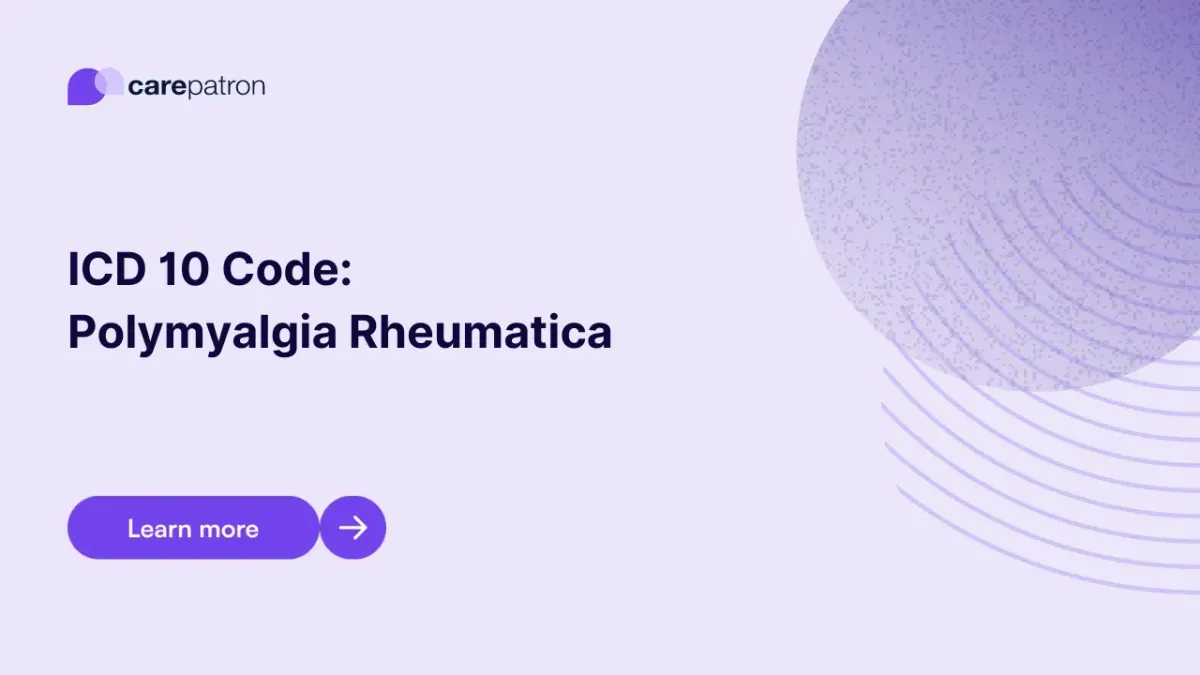
Polymyalgia Rheumatica ICD-10-CM Codes | 2023
Discover commonly used ICD-10 codes for Polymyalgia Rheumatica. Ensure accurate diagnosis and billing for this inflammatory condition.
Use Code
Commonly asked questions
Use a Polymyalgia Rheumatica ICD code when diagnosing or billing for the condition.
Yes, Polymyalgia Rheumatica diagnoses are billable for medical services and treatment.
Common treatments include corticosteroids, nonsteroidal anti-inflammatory drugs (NSAIDs), and lifestyle changes to manage symptoms.
EHR and practice management software
Get started for free
*No credit card required
Free
$0/usd
Unlimited clients
Telehealth
1GB of storage
Client portal text
Automated billing and online payments
